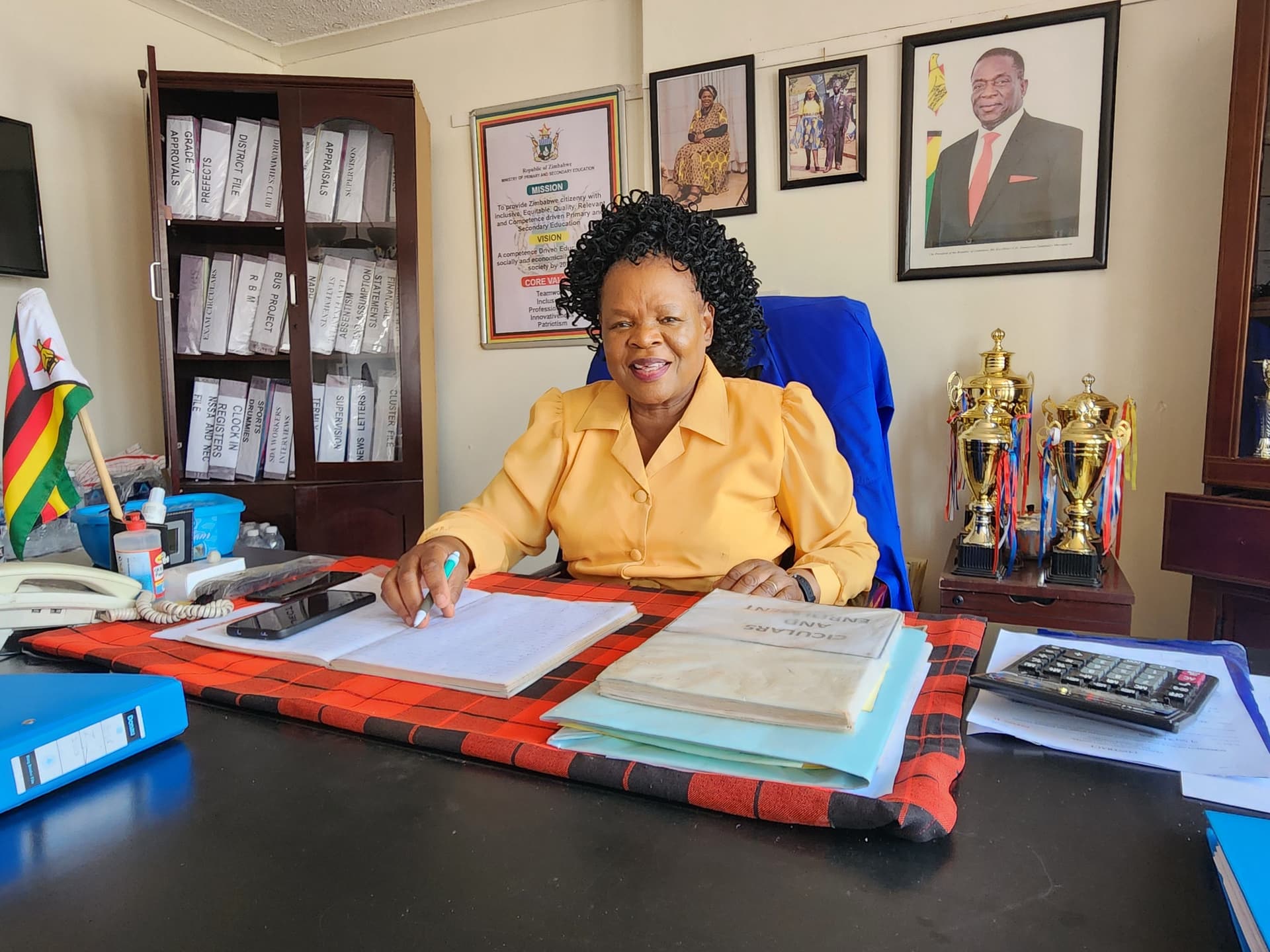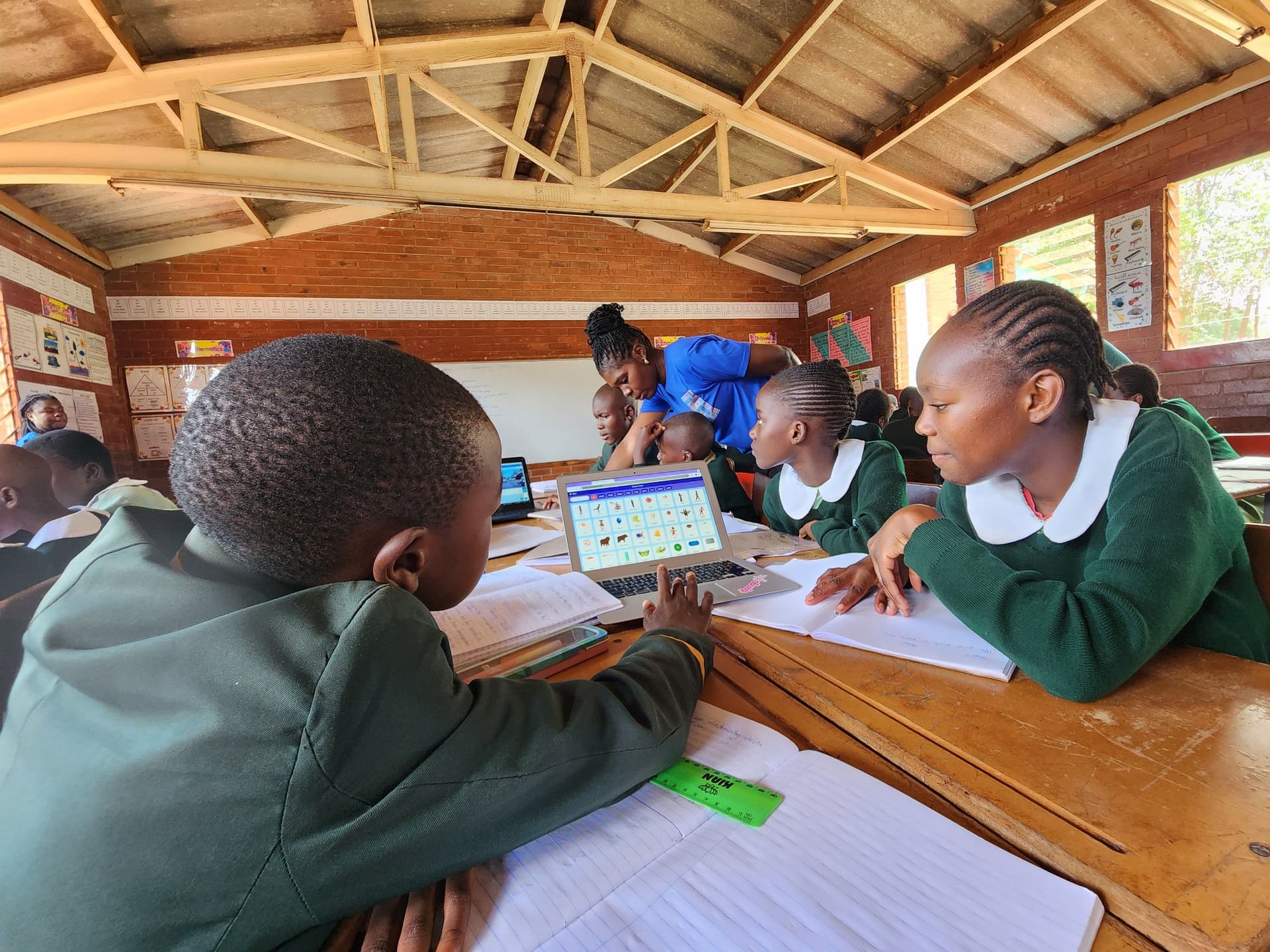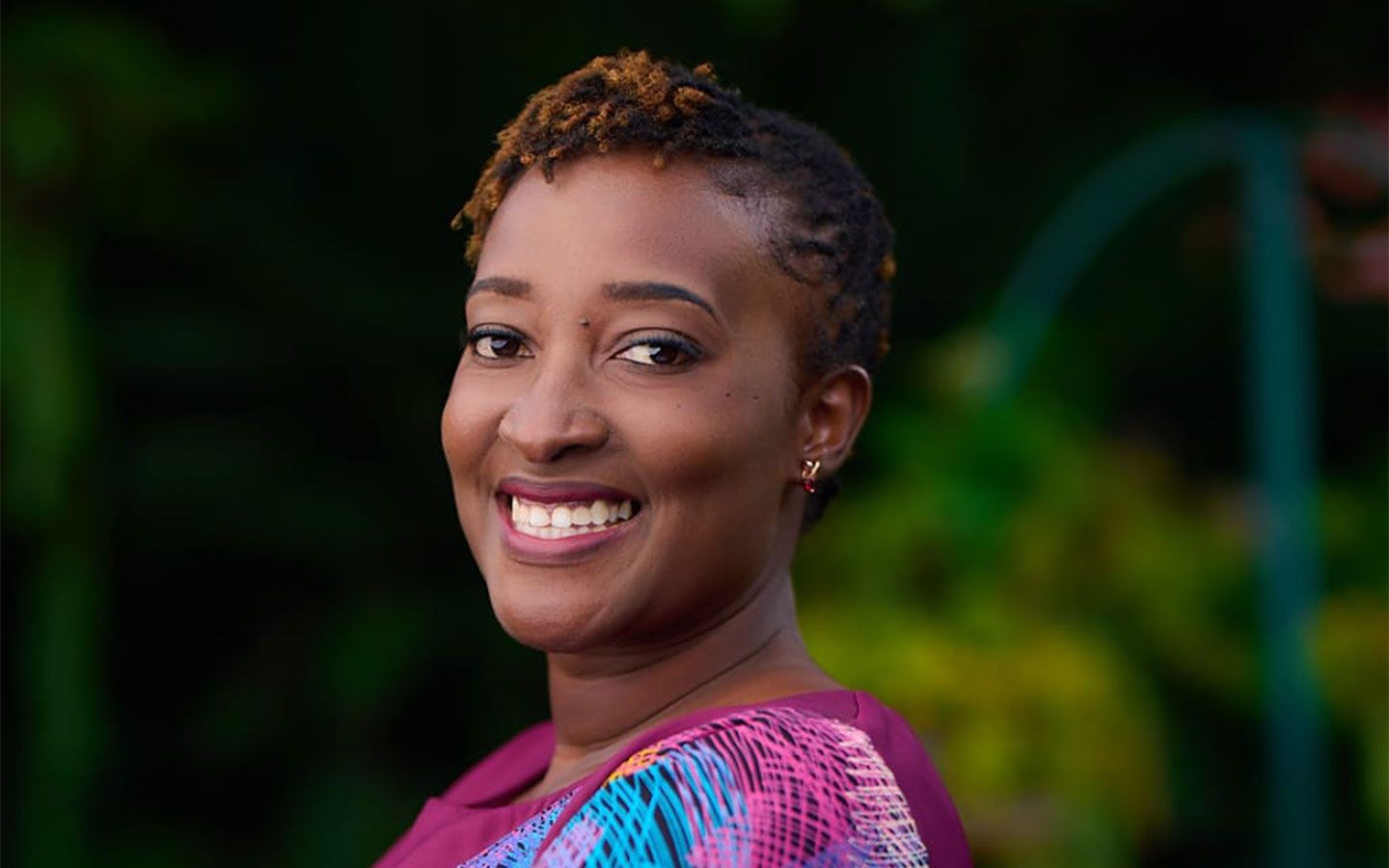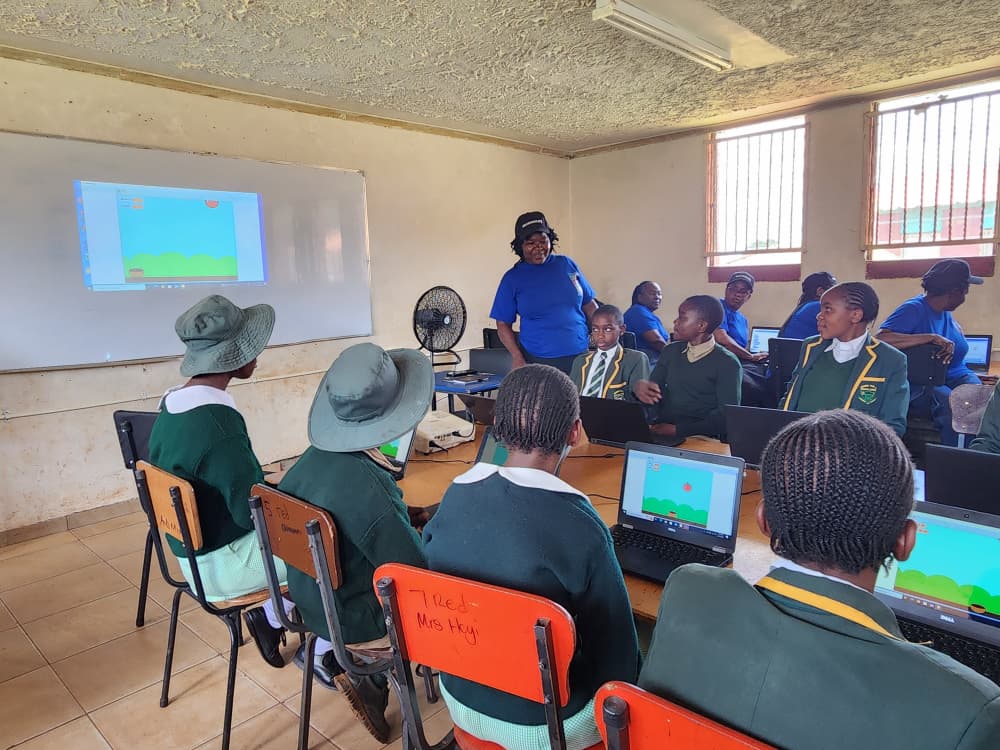
When Mrs Keresenzia M Chirere arrived at Warren Park 2 Primary School in May 2012, she walked into what she describes as "a school operating as if it were in a rural area, but actually located in an urban setting." The pass rate was 49%. Standards were low. And just months into her new role, she was called to a hearing to explain why results kept declining.
"I was very much embarrassed," she recalls. "I didn't like it."
Today, thirteen years later, Warren Park 2's pass rate hovers between 80% and 96%. Last year, it hit 94.96%. And Mrs. Chirere credits much of the continued transformation to an unexpected partnership with Uncommon's coding program.
This is her story.
The Early Days: Building From the Ground Up
You've had quite a journey to get here. Can you tell us a bit about yourself?
I trained at United College of Education from 1984 to 1987. After qualifying, I taught at several schools before being promoted to deputy head at Tashinga Primary in 2007. Then I became head at the Dominican Convent in the CBD in 2012, but I was there only briefly. In May 2012, I came to Warren Park 2, and I've been here ever since.
What was the situation when you arrived?
The pass rate in 2011 was 49%. When I was called for that hearing in 2012, I came back and held a meeting with teachers. We strategized together, met with parents, and discussed how we could improve.
That same year, we rose to 51%. It was just 2%, but I was so happy because it showed the teachers were motivated and eager to produce results.
Then in 2013, we jumped to 71%. We celebrated with parents. They were so excited because they'd never seen 71% before. It felt like we were skyrocketing.
In 2014, a new deputy head, Mr. Kaseke, joined us. We worked together, and from that year to now, our pass rate has ranged from 80% to 96%.
Enter Uncommon: Fear, Then Hope
What was your first impression when you heard about the partnership with Uncommon?
We were afraid. The teachers, the administrators, all of us were afraid.
When they started, it was called Sprout Coding. They said it was coming from America, and we didn't know exactly what they were going to do or how they'd operate. We didn't even have enough room to accommodate them.
But surprisingly, they brought their own things (a container and laptops). Everything was in order. And we became very interested in knowing more about them. As time went on, they changed their name to Uncommon.
What were some of the biggest challenges before Uncommon arrived?
We didn't have a computer lab. We only had a room that we'd prepared to be one, but we never had computers. We never had an experienced computer teacher. So we ended up using that room as a classroom.
But when Uncommon came, we created space for them. Now we have a computer lab.

How have your teachers changed since the training program started?
The teachers are so excited. When they started with Scratch, they all wanted hands-on experience because they knew something new was coming.
You have to understand, many of us have never used computers. I'm one of those people born before computers. I didn't know how to use a laptop.
But now the teachers can use their own laptops to enter student marks and record everything. They can send me their record books through the computer, which is very good. They can enter their reports and recordings online and send them to me on my laptop. When I browse through them, I feel very happy.
Unfortunately, most parents don't have smartphones or computer access, so we can't send reports online. But teachers can now do everything digitally, and that's a huge change.
What excites them? What worries them?
They're eager to learn more. Some teachers have even joined colleges to upgrade themselves, which is very exciting. There's no worry anymore, just excitement about what's possible.
What changes have you noticed in the children attending the after-school coding program?
The children have changed so much. They're eager to learn. With the heritage-based curriculum, they can now do their own projects. They have this feeling of wanting to do their own thing.
As a school, we're planning to have a room we'll call an innovation hub, because they're always asking us, "We want to do this, we want to do that." The children are all eager, and the teachers are too.

Are there students who struggled in traditional subjects but are thriving in coding?
Yes. We have students who could not even read English or Shona. But with computers, when they go to the lab, I don't know how they're doing it, but they're able. We still have some non-readers, but they're very few now.
We even have a child with a disability. He's mentally challenged, but he can navigate the computer and search for whatever he wants. The teacher said, "I think we need to give him a laptop so he learns everything through the computer. When exams come, we'll give him his own laptop to do his exams." He's very good with computers. He's now in grade 6.
How do parents feel about their children learning computers?
Their parents are so happy. They always ask where the donation came from, calling it manna from heaven.
Their children don't play around in the streets as much anymore. When they get home, they're asking for tablets or phones. They start searching. The children always say, "At school, they taught us to do this. Give me your phone, Mama. I want to check. I want to Google."
Which is so exciting. The parents are happy.
Was there a moment when you realized, "This is really working"?
Yes. It was in 2023.
Mr. Kaseke was delivering a lesson on essay writing to the grade sevens. He invited me to observe their progress, noting, 'I've noticed these children are clever. They use the internet to see how others write compositions. They read. Then, if you give them a topic, they'll write it without even consulting the computer."
They've improved their language. Their spoken English is now very good.
Those students were in grade 5 at the time; now, as grade 7 students, they have just sat for their exams.
What are your hopes for your students five or ten years from now?
We're from a low-income community. I hope these students will attend good secondary schools equipped with ICT resources, so they can continue their learning.
If not, I hope Uncommon can visit some of the secondary schools so it can equip those students, too. My wish would be that they catch up with students from better-resourced schools.
If every school in Zimbabwe could have what Warren Park 2 has, what difference would that make?
It would change the mentality of all Zimbabweans.
We want people who can be good citizens, with minds that think critically. Uncommon is helping us do that. People in Zimbabwe want to work, but with this training, they'll be able to create jobs for other people.
Yes, Uncommon is doing it very well.
What would you say to other heads considering bringing coding into their schools?
I would encourage them to do it like yesterday.
It's so good. It's improved the morale toward school. It's improved the mindset of parents in the community. Don't wait, just do it.
What's your vision for Warren Park 2 in the next few years?
I dream that most of our students, after completing grade 7, will remain engaged with ICT..
We're planning to have an innovation hub at school. I dream that students will come back and teach the siblings they've left behind at this school. Some may even become teachers themselves.
When Mrs. Chirere first heard about Uncommon, she was afraid. Her teachers were worried. They didn't know what this program from America would bring to their small school in Warren Park.
But today, teachers who couldn't operate a laptop are sending digital reports. Students who couldn't read are navigating computers with confidence. A child with a mental disability is thriving in ways no one imagined. And a school that once had a 49% pass rate is now consistently above 90%.
"The coming of Uncommon at Warren Park 2 was a very notable change," Mrs. Chirere says. "It improved the pass rates. The use of computers has influenced everything. We really appreciate their presence at the school."
From fear to hope. From 49% to 95%. From a school in survival mode to a school dreaming of innovation hubs and students returning as teachers.
That's the power of giving every child, and every teacher, a chance to code.
Every student deserves the chance to unlock their potential through technology. Help us bridge the digital divide, support Uncommon’s mission to deliver free coding and tech education to students and teachers in Zimbabwe’s low-income communities. Your contribution can fuel transformation, spark hope, and empower the next generation of innovators.
Donate today and be part of the change.
To learn more about our work or support schools like Warren Park 2, visit uncommon.org.

We sat down with our Country Director, Michelle Gwatiringa and had a conversation about th...

In 2020, in the middle of a global pandemic, something quiet but powerful began at Warren ...

For nearly three years, I lived alone, paying rent, sometimes eating, sometimes going with...